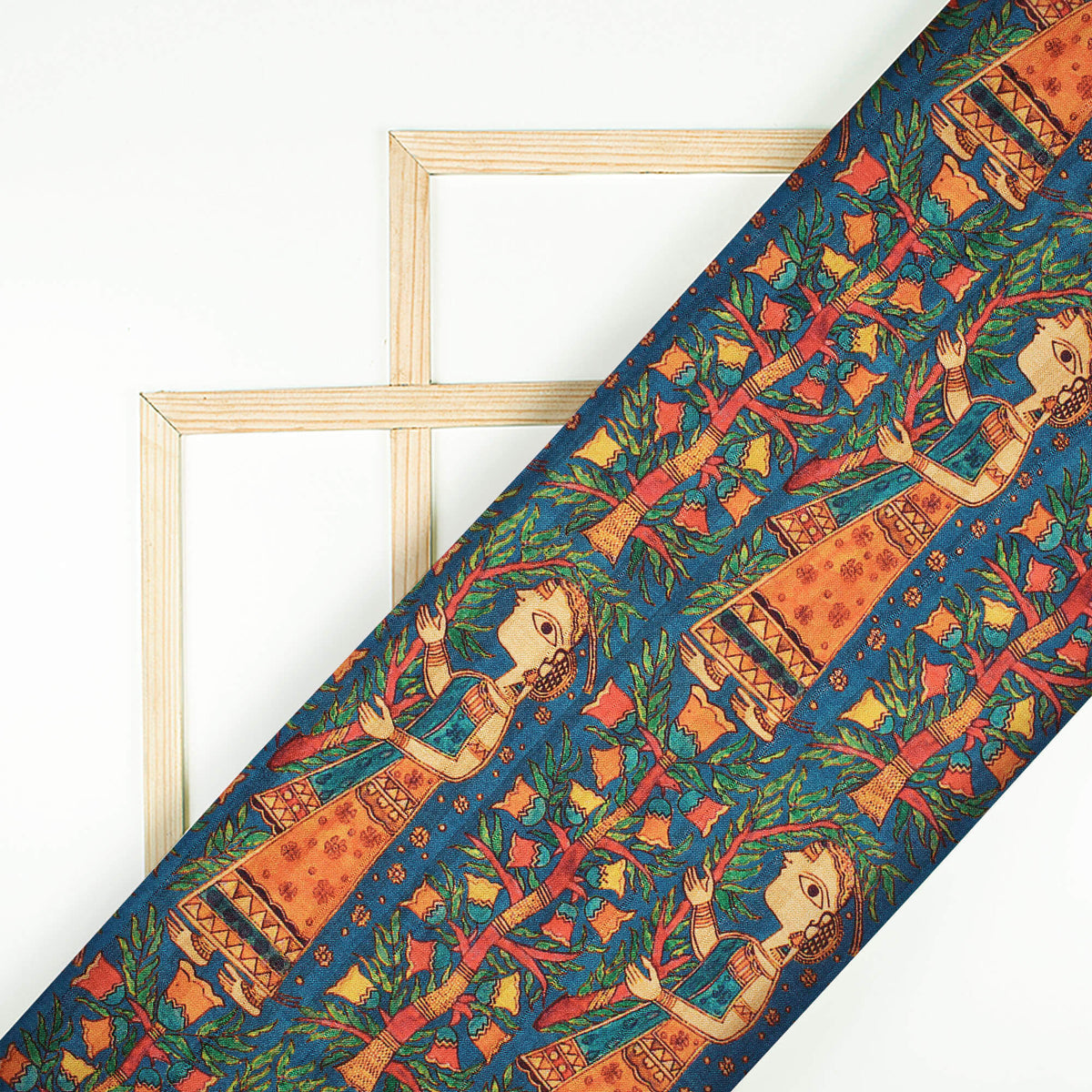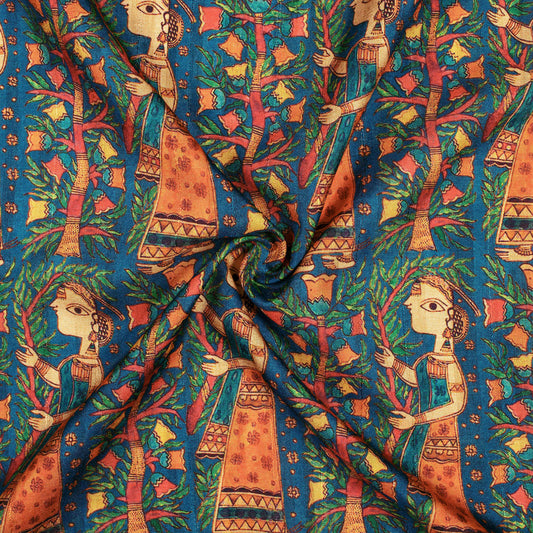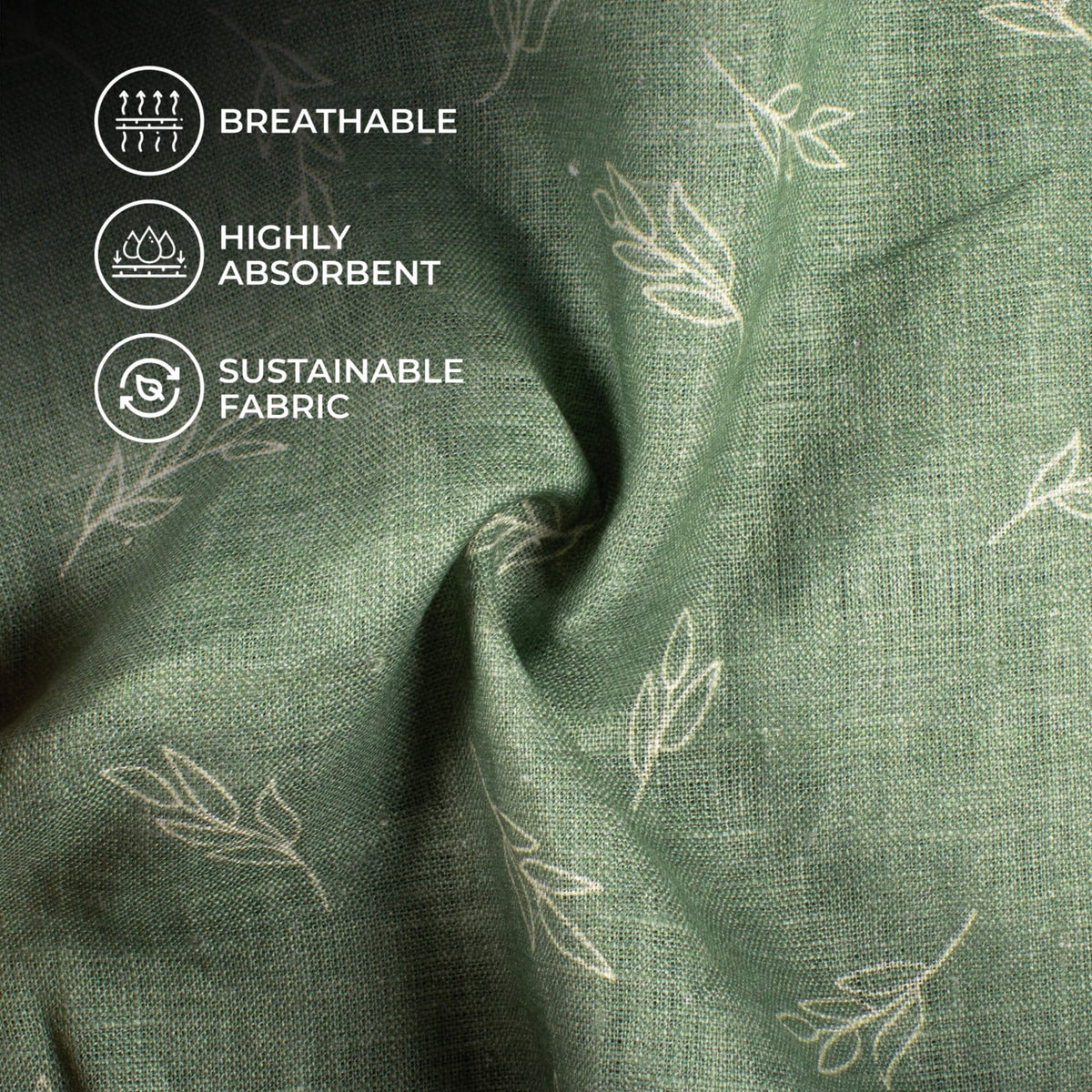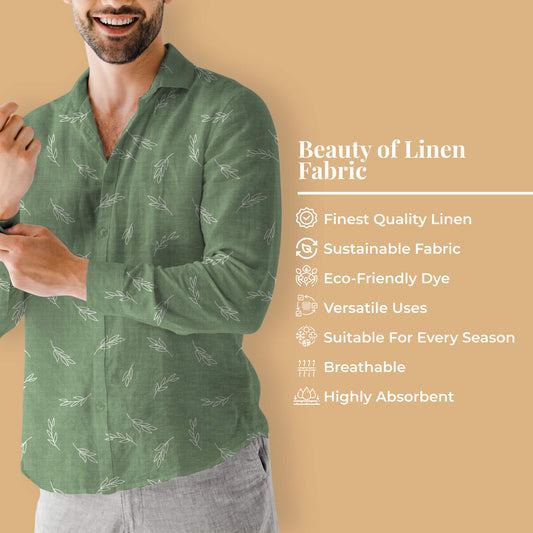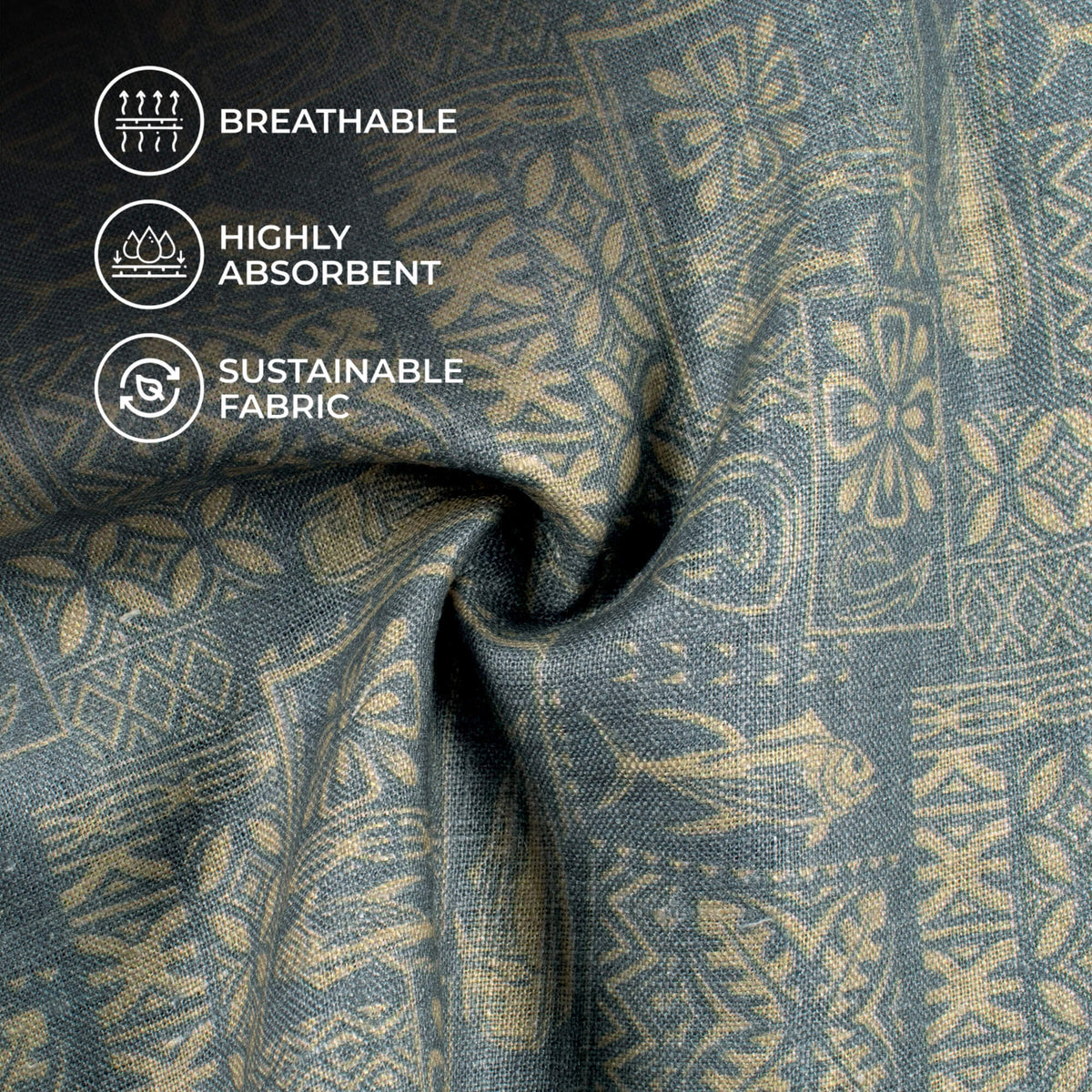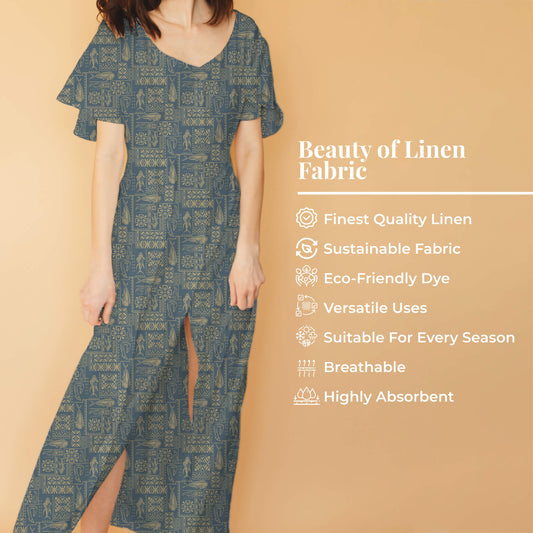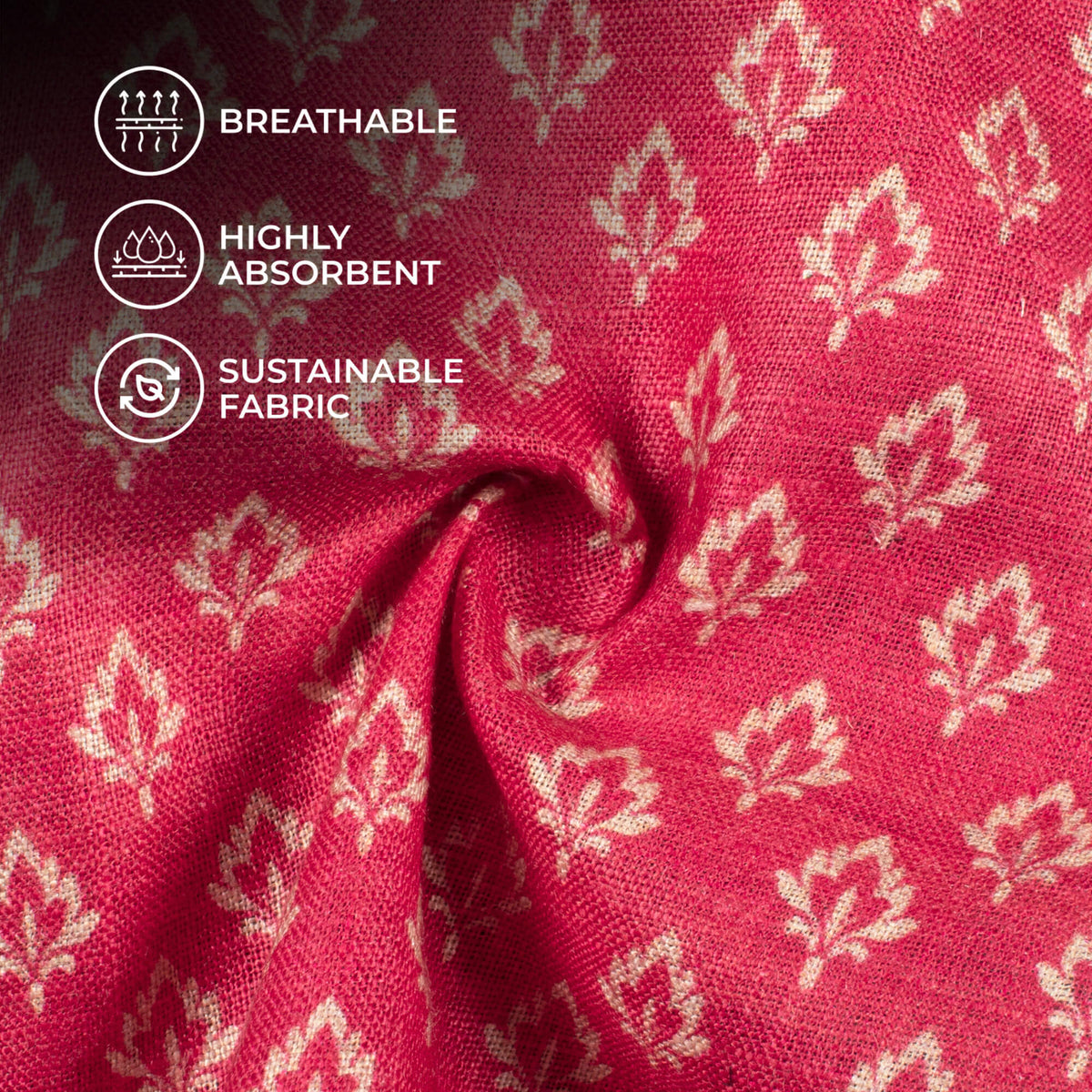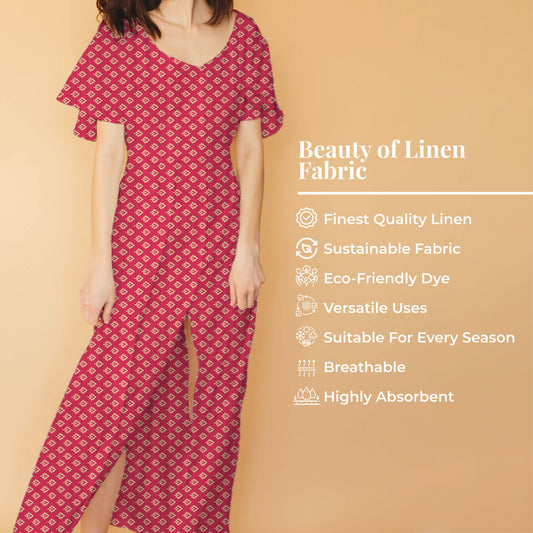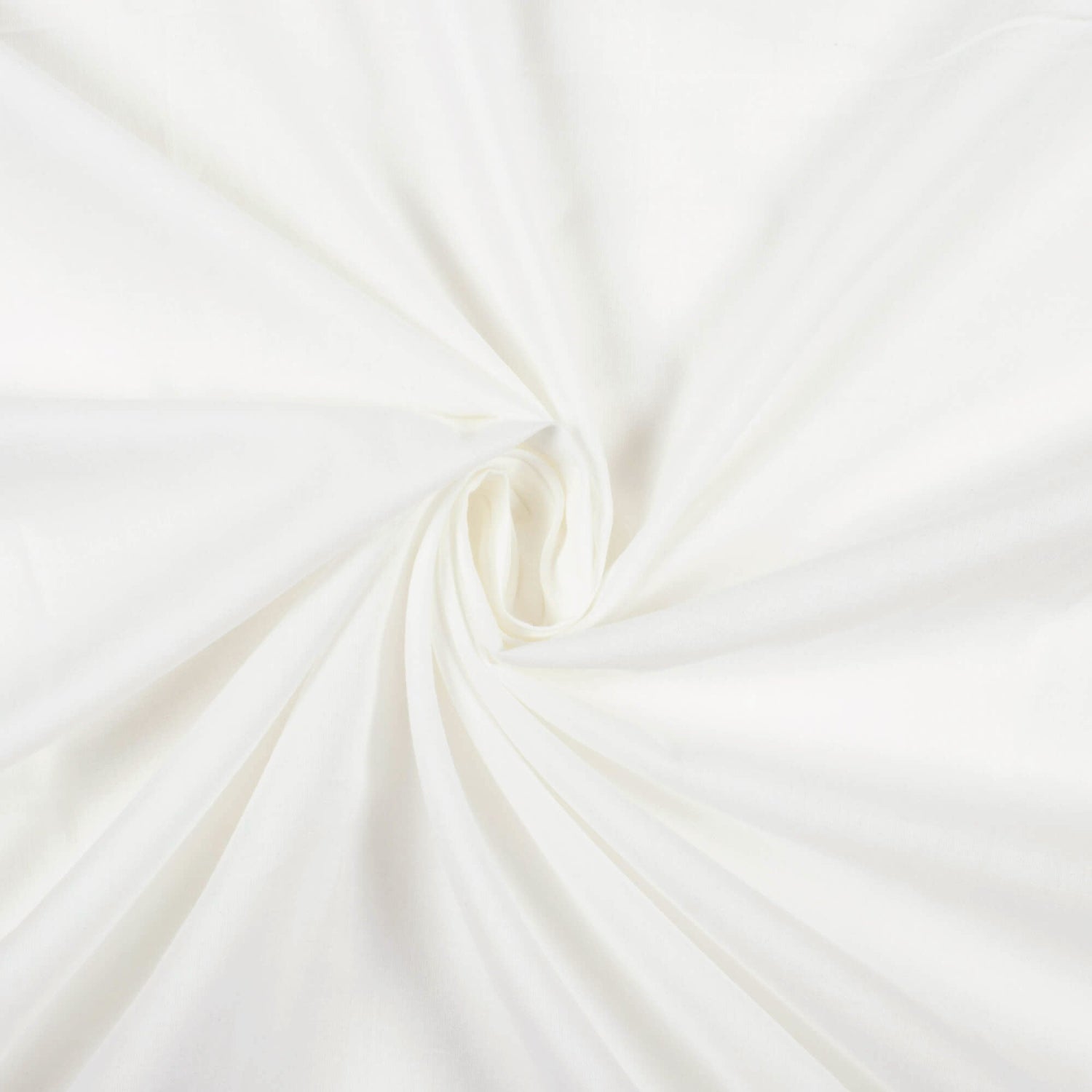
Organic Cotton
Organic cotton is grown without the use of harmful chemicals or synthetic pesticides, making it gentle on the environment and safer for farmers and consumers. It promotes biodiversity and sustainable farming practices, ensuring a healthier planet for future generations.
---------------------------------------
➔ Why should you buy this fabric
- Free from harmful chemicals and toxins, making it hypoallergenic and suitable for sensitive skin.
- Contributes to water conservation and reduced greenhouse gas emissions compared to conventional cotton.
- Supports fair trade practices, providing better livelihoods for cotton farmers.
Organic Cotton
-
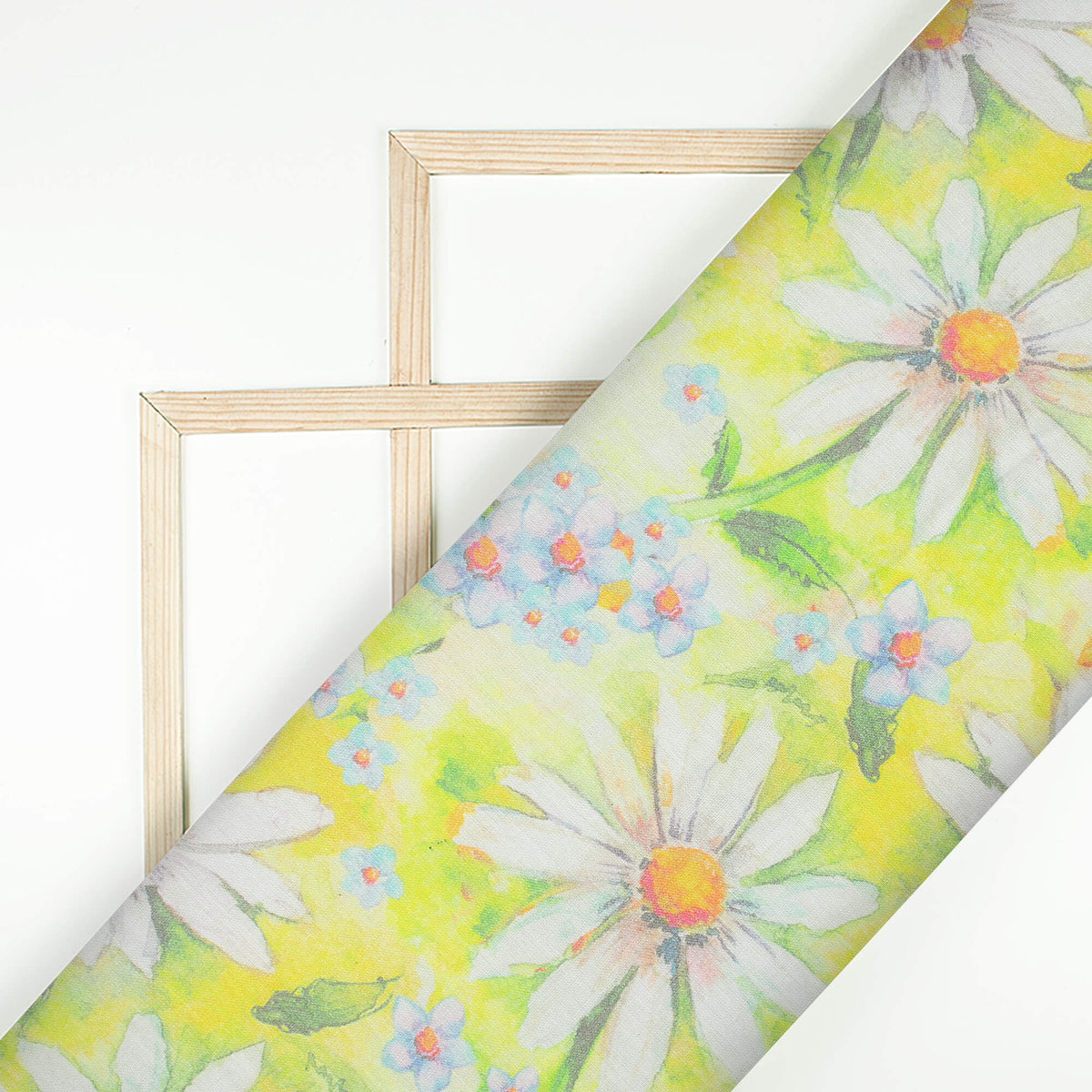
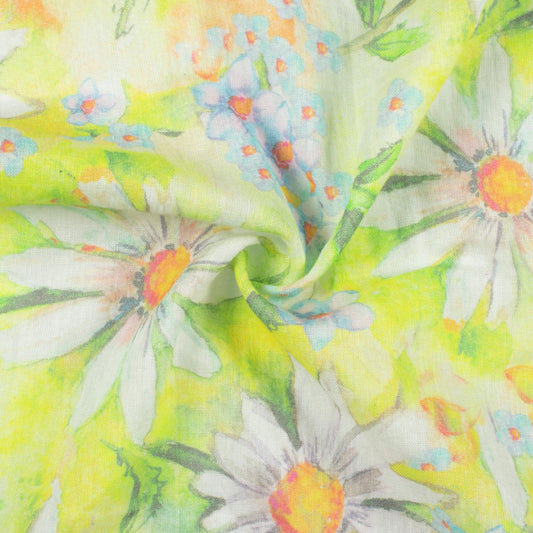 -11% off
-11% offLemon Yellow And White Floral Pattern Digital Print Pure Cotton Mulmul Fabric Lemon Yellow And White Floral Pattern Digital Print Pure Cotton Mulmul Fabric
Regular price ₹ 399.00 /meterUnit price perSale price ₹ 399.00 Regular price₹ 449.00/meter11% offSale -
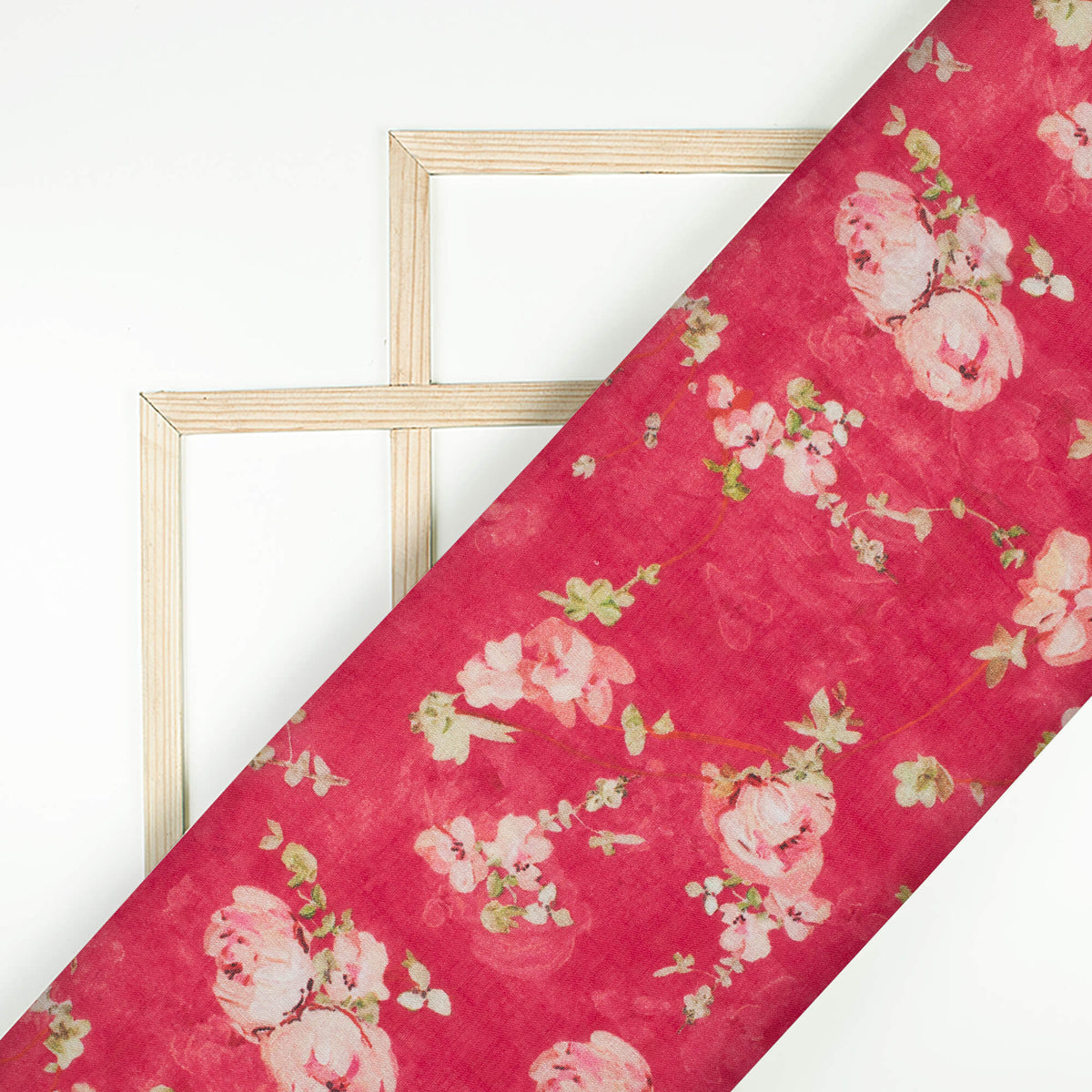
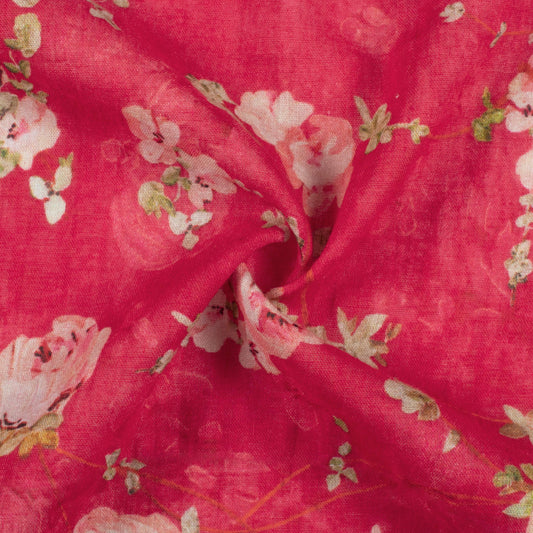 -11% off
-11% offDeep Pink And White Floral Pattern Digital Print Pure Cotton Mulmul Fabric Deep Pink And White Floral Pattern Digital Print Pure Cotton Mulmul Fabric
Regular price ₹ 399.00 /meterUnit price perSale price ₹ 399.00 Regular price₹ 449.00/meter11% offSale -
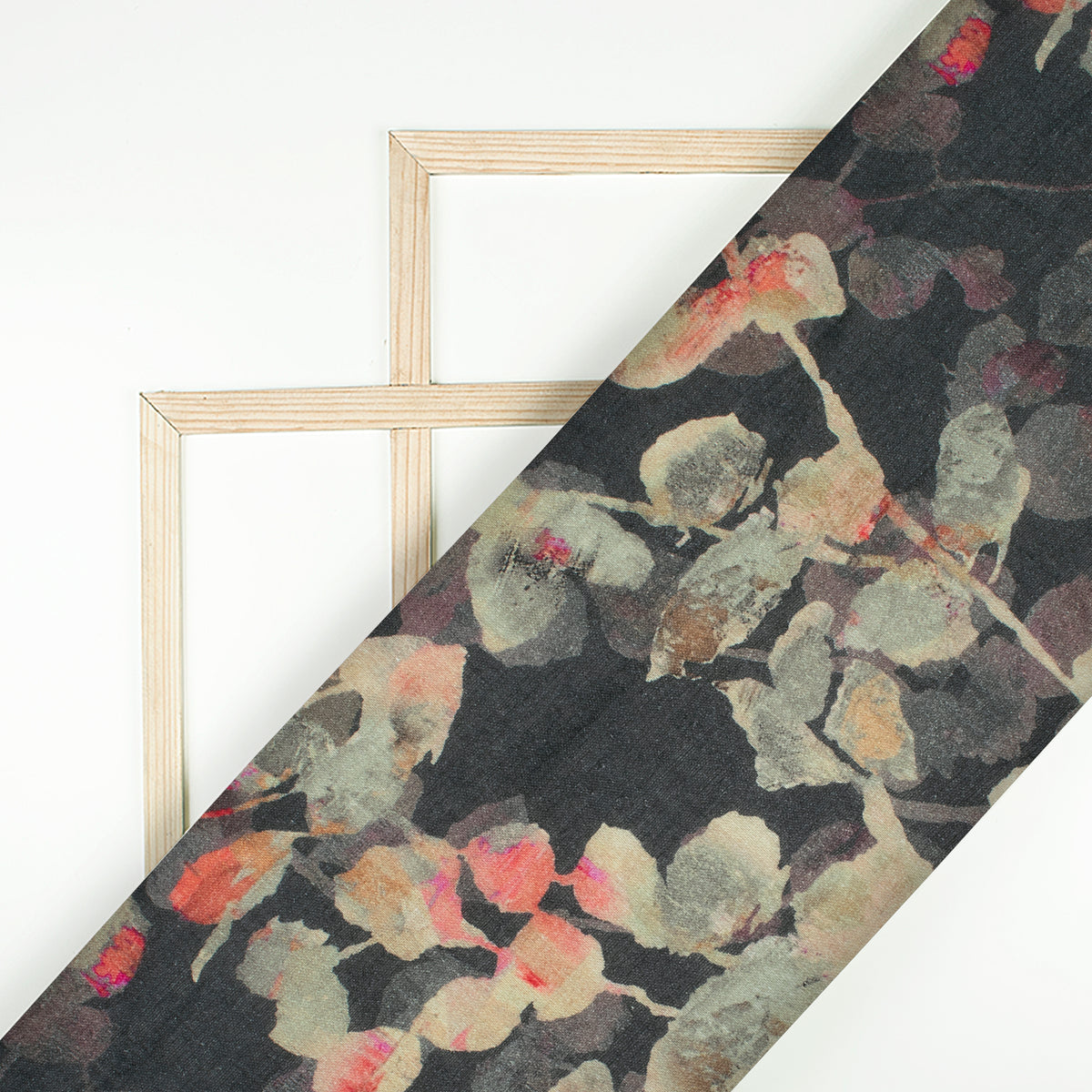
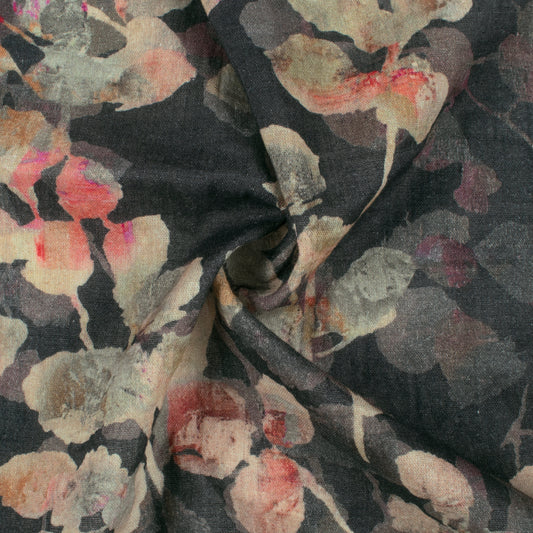 -11% off
-11% offBlack And Off White Leaf Pattern Digital Print Pure Cotton Mulmul Fabric Black And Off White Leaf Pattern Digital Print Pure Cotton Mulmul Fabric
Regular price ₹ 399.00 /meterUnit price perSale price ₹ 399.00 Regular price₹ 449.00/meter11% offSale
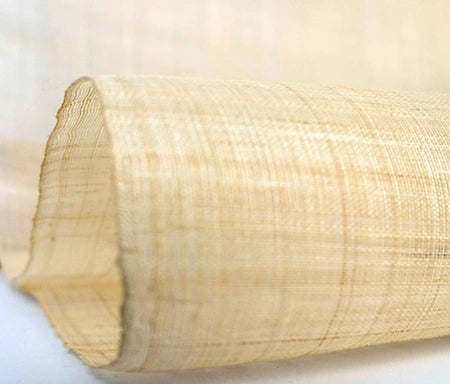
Exotic Banana Silk
Banana silk is made from the fibers of the banana plant's pseudostems after the fruit harvest. This unique, eco-friendly fabric has been used for centuries in various cultures and is now gaining popularity in the sustainable fashion industry.
---------------------------------------
➔ Why should you buy this fabric
- Luxurious and soft texture, resembling silk, without the harm caused to silkworms.
- Requires minimal water and pesticides during the growth process.
- Supports rural economies and promotes recycling of banana plant waste.
Banana Silk
-
Peacock Blue And Orange Madhuvanii Pattern Digital Print Art Tusser Silk Fabric Peacock Blue And Orange Madhuvanii Pattern Digital Print Art Tusser Silk Fabric
Regular price ₹ 299.00 /meterUnit price perSale price ₹ 299.00 Regular price₹ 329.00/meter9% offSale -
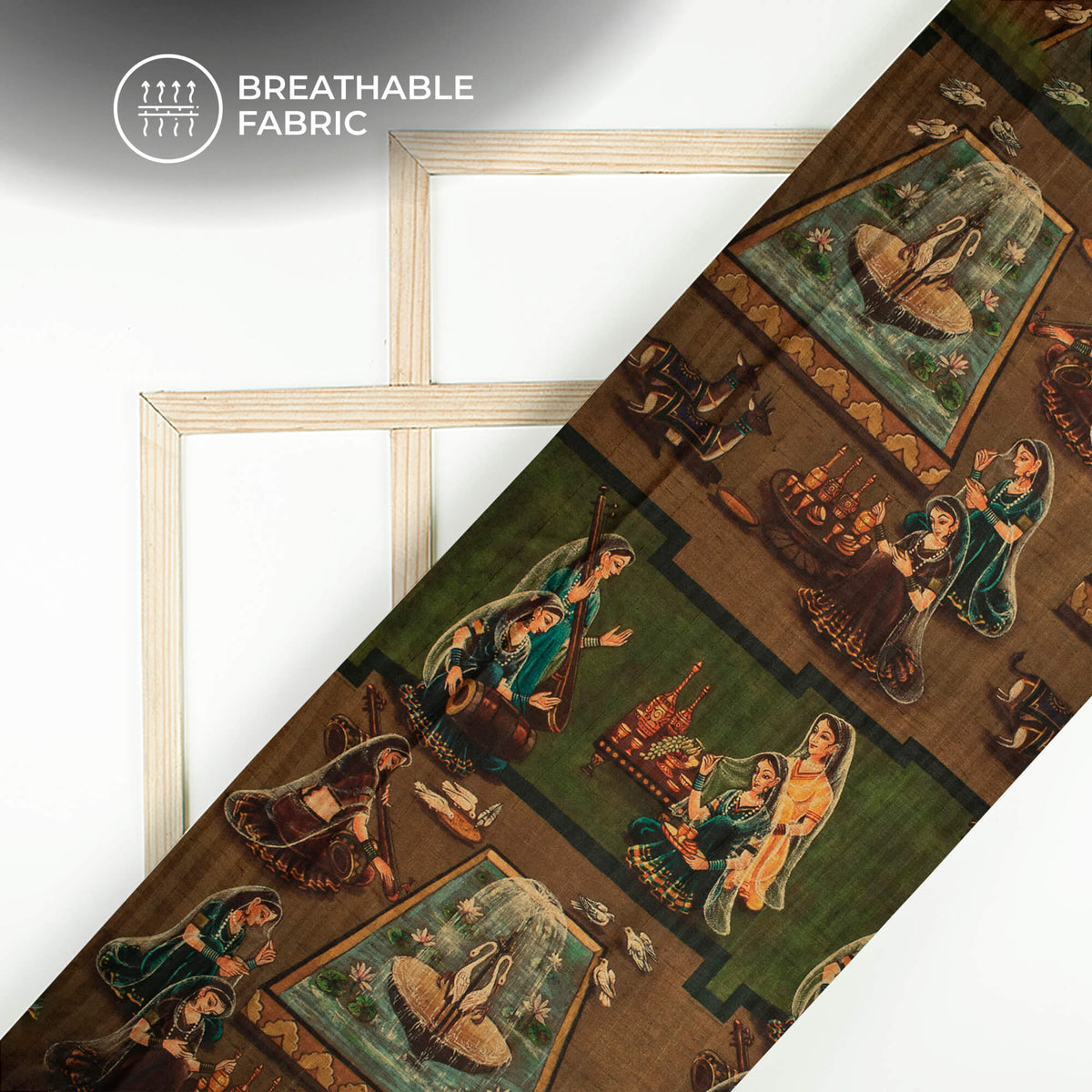
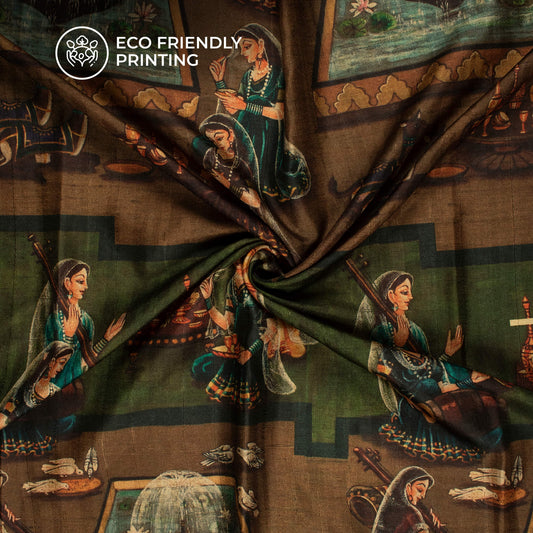 -9% off
-9% offBrown And Green Madhuvanii Printed Art Tusser Silk Fabric Brown And Green Madhuvanii Printed Art Tusser Silk Fabric
Regular price ₹ 299.00 /meterUnit price perSale price ₹ 299.00 Regular price₹ 329.00/meter9% offSale -
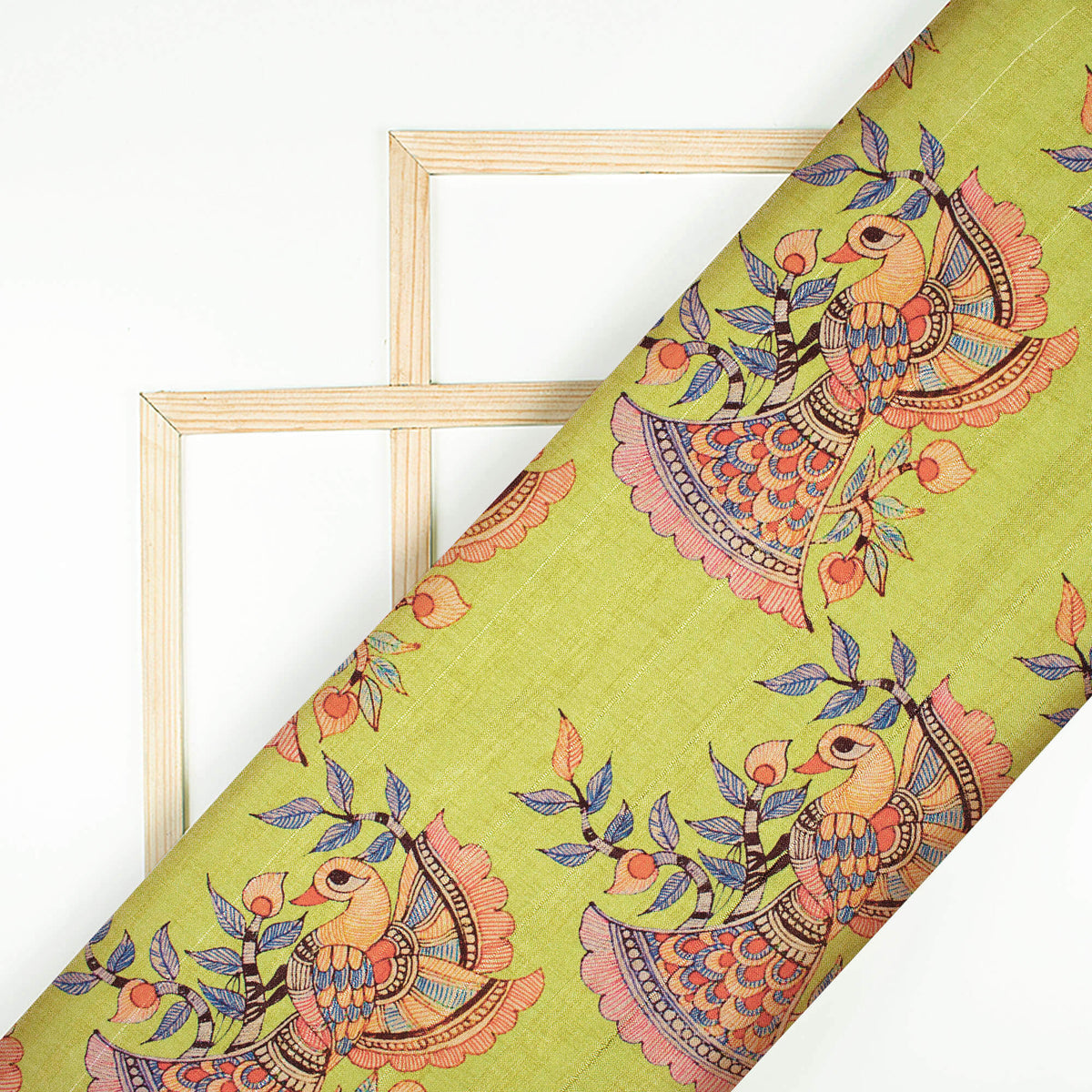
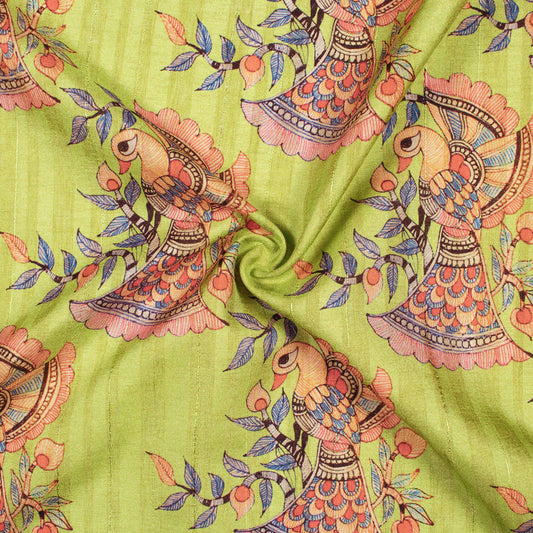
Pistachio Green And Orange Madhuvanii Pattern Digital Print Art Tusser Silk Fabric Pistachio Green And Orange Madhuvanii Pattern Digital Print Art Tusser Silk Fabric
Regular price ₹ 299.00 /meterUnit price perSale price ₹ 299.00 Regular price₹ 329.00/meter9% offSale
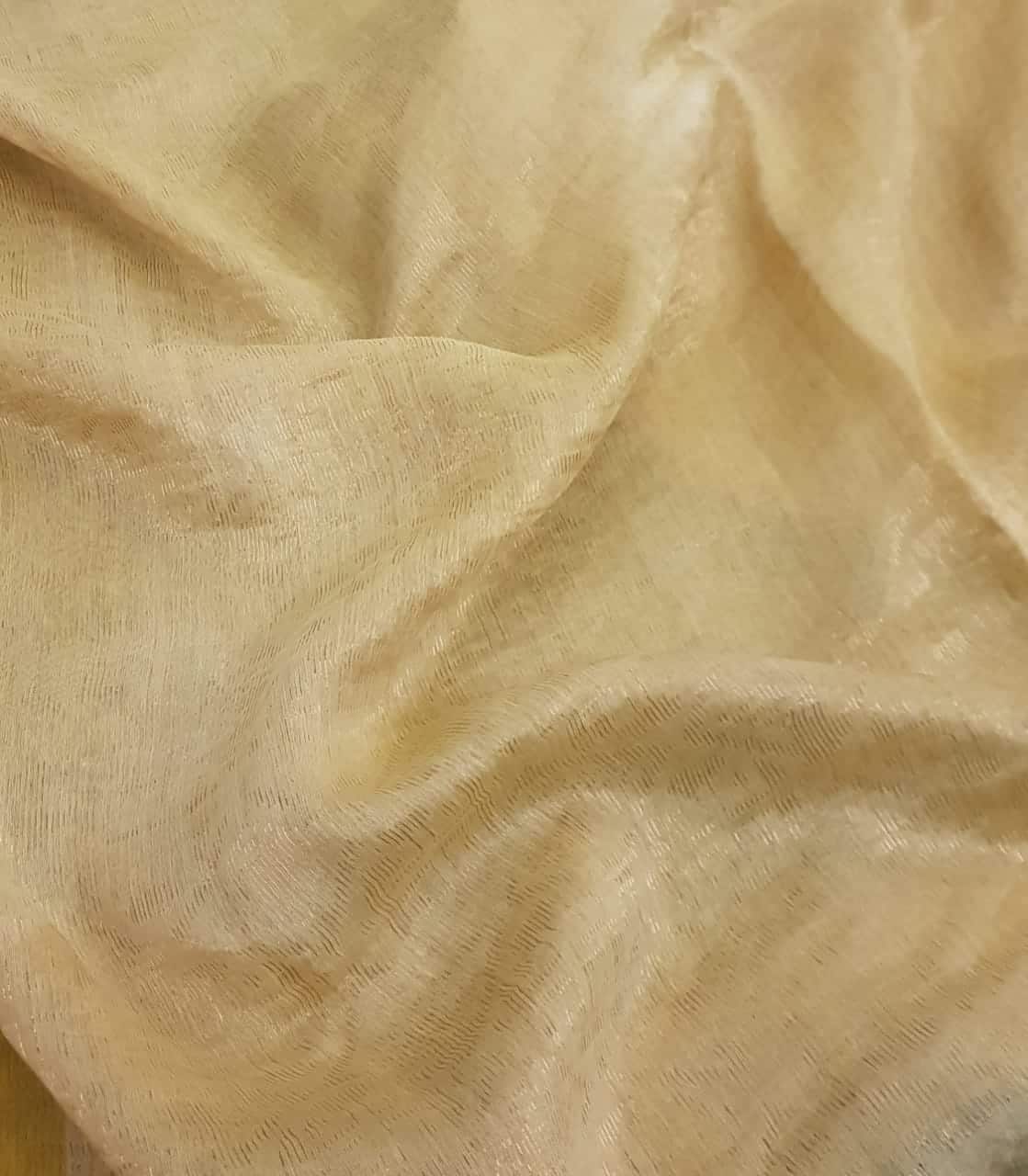
Luxurious Soy Silk
Soy silk, also known as vegetable cashmere, is made from the by product of soybean processing. It is a biodegradable and renewable fabric that provides a luxurious alternative to traditional silk while reducing waste and supporting sustainable agriculture.
---------------------------------------
➔ Why should you buy this fabric
- Silky and smooth texture, resembling traditional silk but without harming silkworms.
- Biodegradable and compostable, minimizing environmental impact at the end of its lifecycle.
- Cultivates the use of soybeans, a renewable resource, and reduces reliance on animal-based fibers.
Soy Silk
-
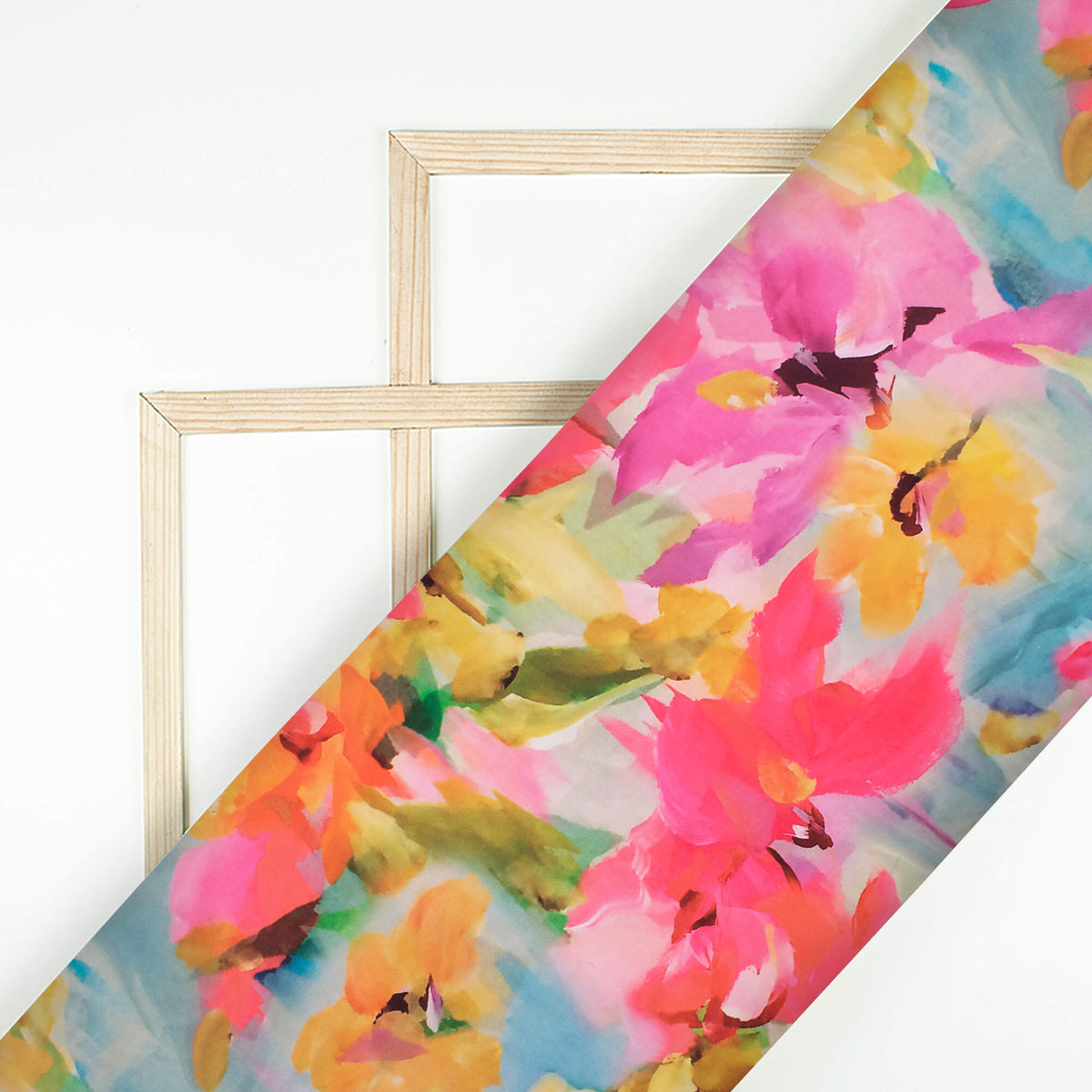
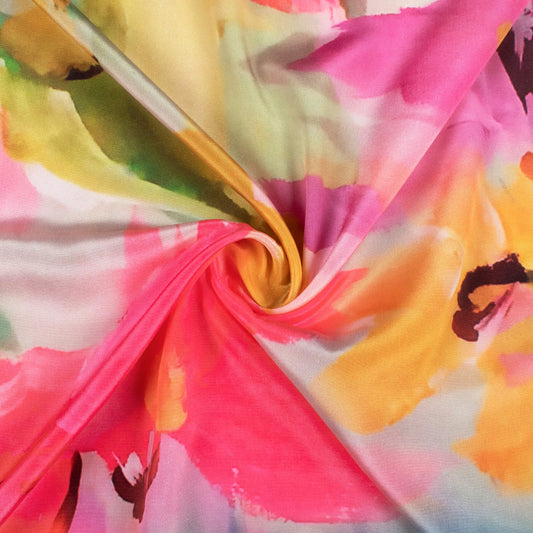 -7% off
-7% offBubble Gum Pink And Orange Abstract Pattern Digital Print Crepe Silk Fabric Bubble Gum Pink And Orange Abstract Pattern Digital Print Crepe Silk Fabric
Regular price ₹ 249.00 /meterUnit price perSale price ₹ 249.00 Regular price₹ 269.00/meter7% offSale -
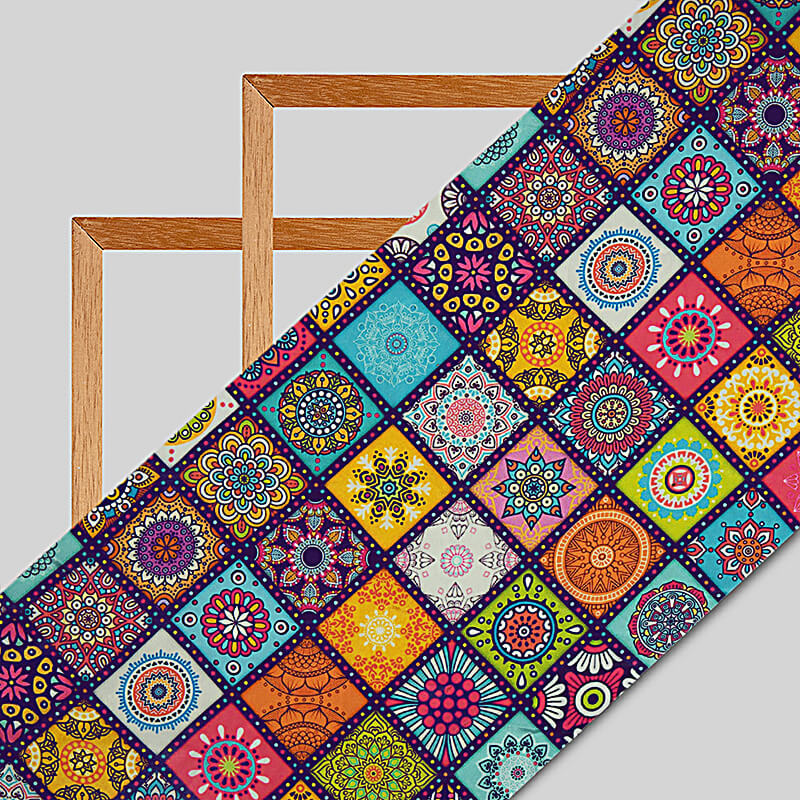
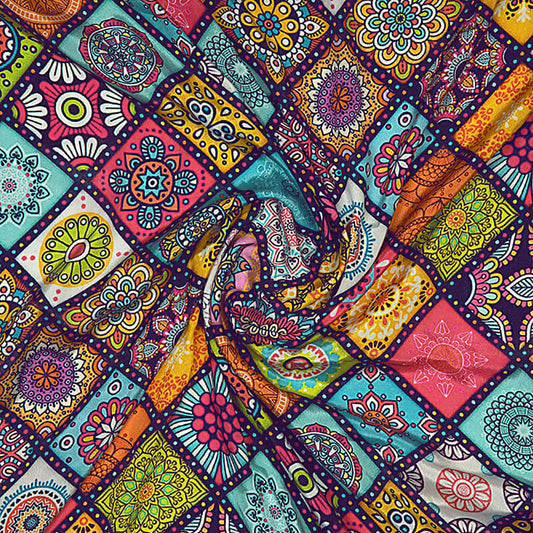 -7% off
-7% offMulticolor Gamthee Digital Print Crepe Silk Fabric Multicolor Gamthee Digital Print Crepe Silk Fabric
Regular price ₹ 249.00 /meterUnit price perSale price ₹ 249.00 Regular price₹ 269.00/meter7% offSale -
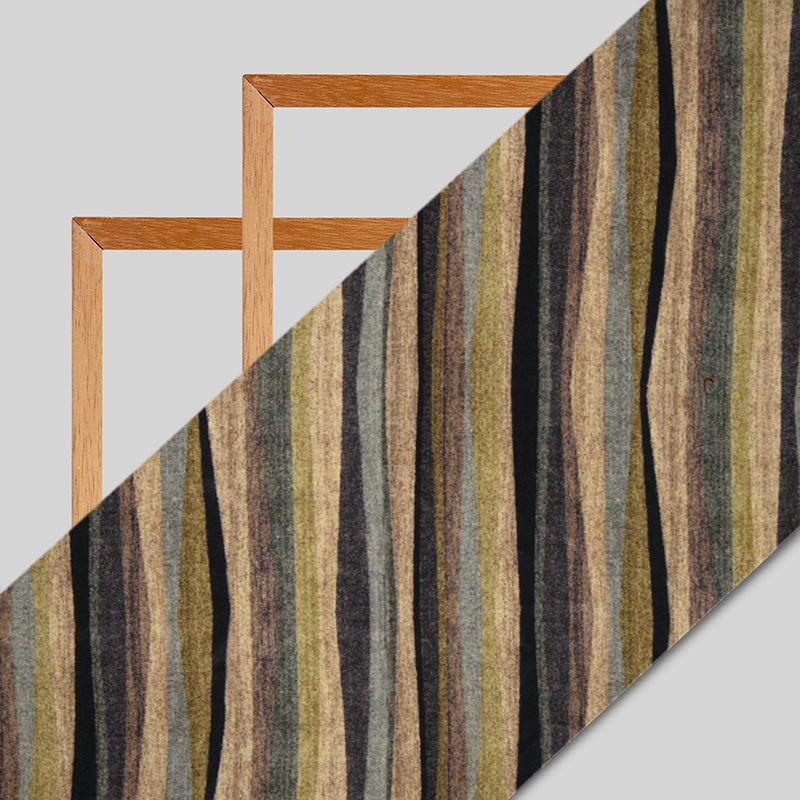
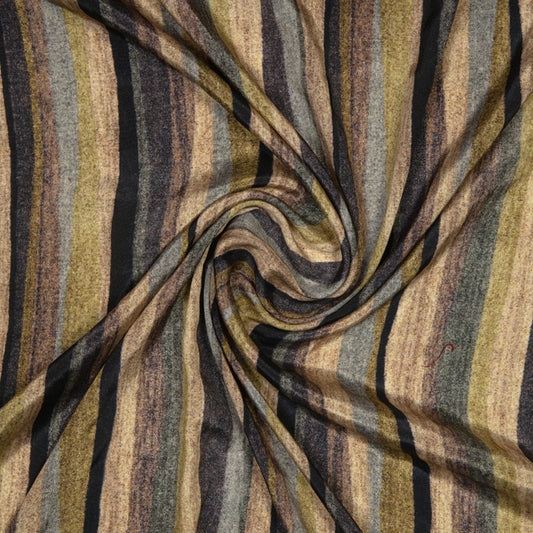 -7% off
-7% offBeige And Black Texture Pattern Digital Print Crepe Silk Fabric Beige And Black Texture Pattern Digital Print Crepe Silk Fabric
Regular price ₹ 249.00 /meterUnit price perSale price ₹ 249.00 Regular price₹ 269.00/meter7% offSale
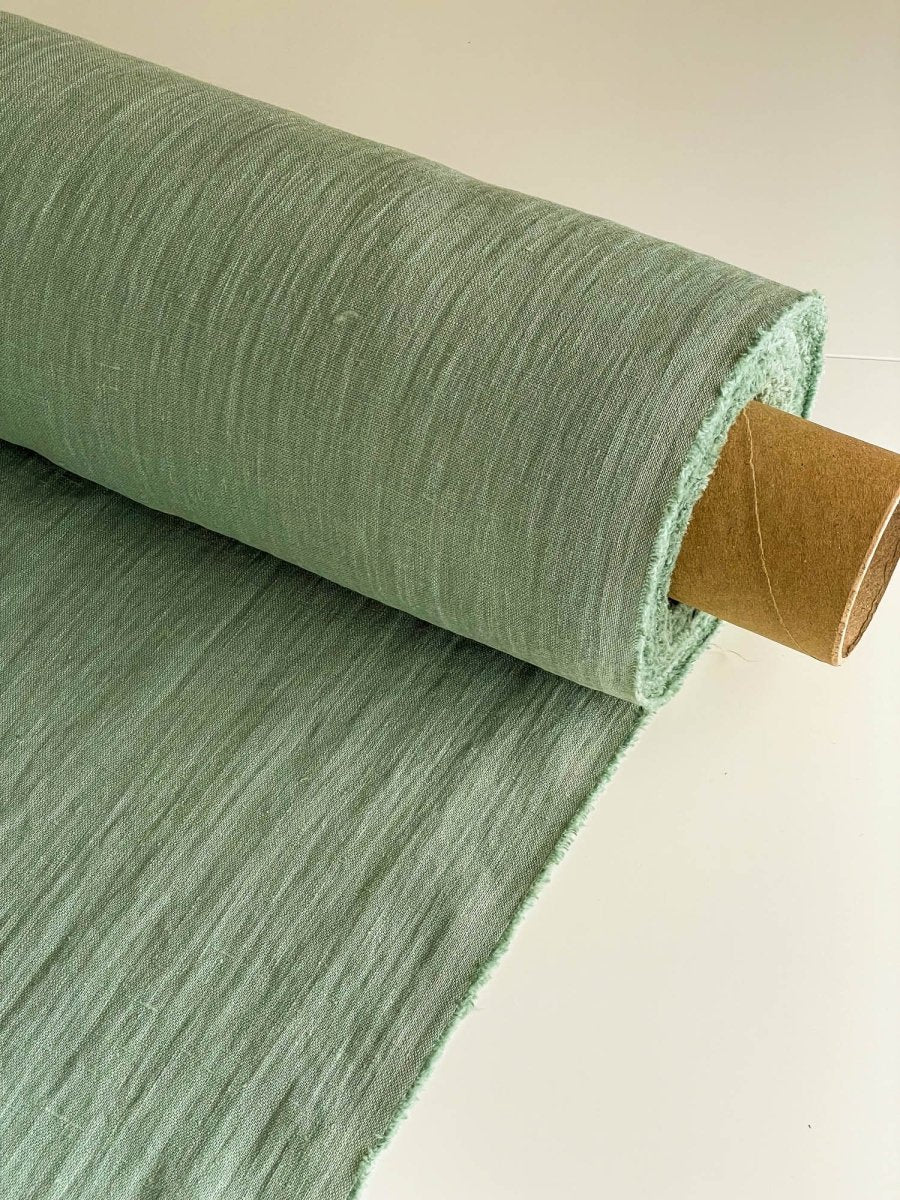
Linen - Timeless Elegance
Linen is a natural fabric derived from the flax plant. It has been used for thousands of years and is renowned for its comfort, breathability, and timeless elegance. Linen's eco-friendliness lies in its low water and pesticide requirements, making it an excellent choice for sustainable fashion.
---------------------------------------
➔ Why should you buy this fabric
- Biodegradable and recyclable, minimizing environmental impact at the end of its lifecycle.
- Antibacterial and hypoallergenic properties, suitable for sensitive and allergy-prone skin.
- Gets softer and more lustrous with each wash, increasing comfort over time.
Linen
-
Laurel Green And White Leaf Pattern Digital Print Premium Swiss Linen Fabric Laurel Green And White Leaf Pattern Digital Print Premium Swiss Linen Fabric
Regular price ₹ 1,899.00 /meterUnit price perSale price ₹ 1,899.00 Regular price₹ 0.00/meter -
Slate Grey And Beige Quirky Pattern Digital Print Premium Swiss Linen Fabric Slate Grey And Beige Quirky Pattern Digital Print Premium Swiss Linen Fabric
Regular price ₹ 1,899.00 /meterUnit price perSale price ₹ 1,899.00 Regular price₹ 0.00/meter -
Hibiscus Red And Beige Booti Pattern Digital Print Premium Swiss Linen Fabric Hibiscus Red And Beige Booti Pattern Digital Print Premium Swiss Linen Fabric
Regular price ₹ 1,899.00 /meterUnit price perSale price ₹ 1,899.00 Regular price₹ 0.00/meter
Frequently Asked Questions
-
 What are sustainable fabrics?
What are sustainable fabrics?Sustainable fabrics are textiles produced using eco-friendly processes and materials that have a lower impact on the environment compared to conventional fabrics. They prioritize ethical practices, reduce resource consumption, and promote responsible manufacturing methods.
-
 Why should I choose sustainable fabrics?
Why should I choose sustainable fabrics?Choosing sustainable fabrics helps reduce your carbon footprint, conserve natural resources, and support ethical practices in the fashion industry. By opting for sustainable textiles, you contribute to a cleaner environment and promote a more responsible and compassionate approach to clothing production.
-
 What is the difference between organic and conventional fabrics?
What is the difference between organic and conventional fabrics?Organic fabrics, such as organic cotton or organic wool, are grown without the use of harmful chemicals like pesticides or synthetic fertilizers. In contrast, conventional fabrics are produced using conventional agricultural methods, often involving the use of chemicals that can harm the environment and human health.
-
 How do sustainable fabrics benefit the environment?
How do sustainable fabrics benefit the environment?Sustainable fabrics benefit the environment by reducing water consumption, minimizing greenhouse gas emissions, and promoting biodiversity. Eco-friendly production processes help conserve natural resources, decrease pollution, and contribute to overall environmental sustainability.
-
 Are sustainable fabrics more expensive?
Are sustainable fabrics more expensive?While some sustainable fabrics may have a slightly higher upfront cost, their long-term benefits and durability often outweigh the initial investment. Additionally, as demand for sustainable fashion grows, economies of scale may help reduce prices in the future.
-
 Do sustainable fabrics compromise on quality or style?
Do sustainable fabrics compromise on quality or style?No, sustainable fabrics can match or even exceed the quality and style of conventional fabrics. With advancements in technology and increased demand for sustainable fashion, designers and manufacturers are creating stylish and innovative products that meet the highest quality standards.
-
 How can I contribute to sustainable fashion beyond fabric choice?
How can I contribute to sustainable fashion beyond fabric choice?You can support sustainable fashion by opting for timeless and durable pieces, avoiding fast fashion trends, and recycling or donating old clothing. Additionally, raising awareness about the importance of sustainable fashion and making conscious choices as a consumer can contribute to a more sustainable fashion industry.
Still have questions?
Can’t find the answer you’re looking for? Please chat to our friendly team.












